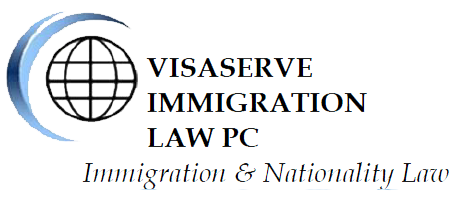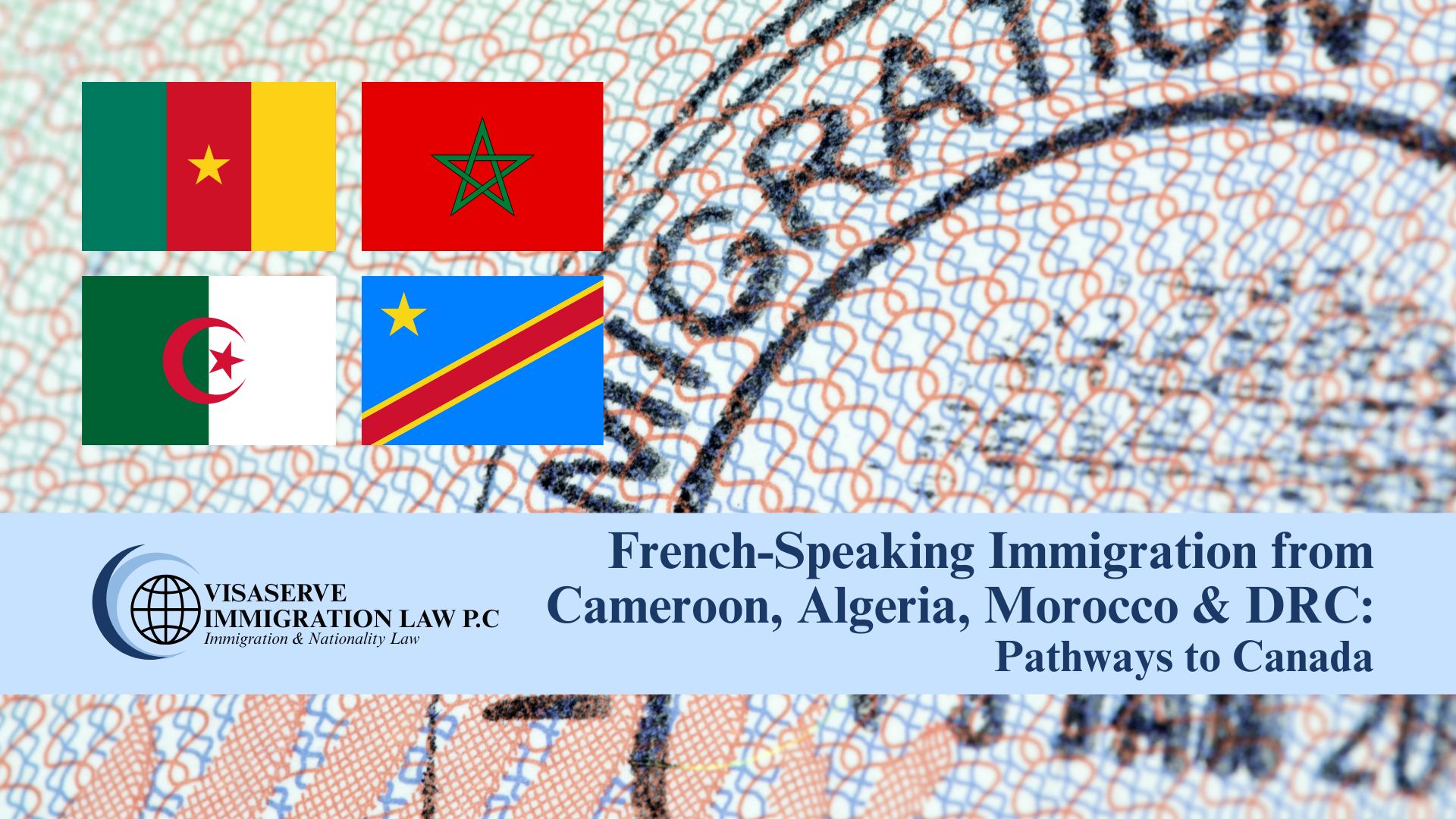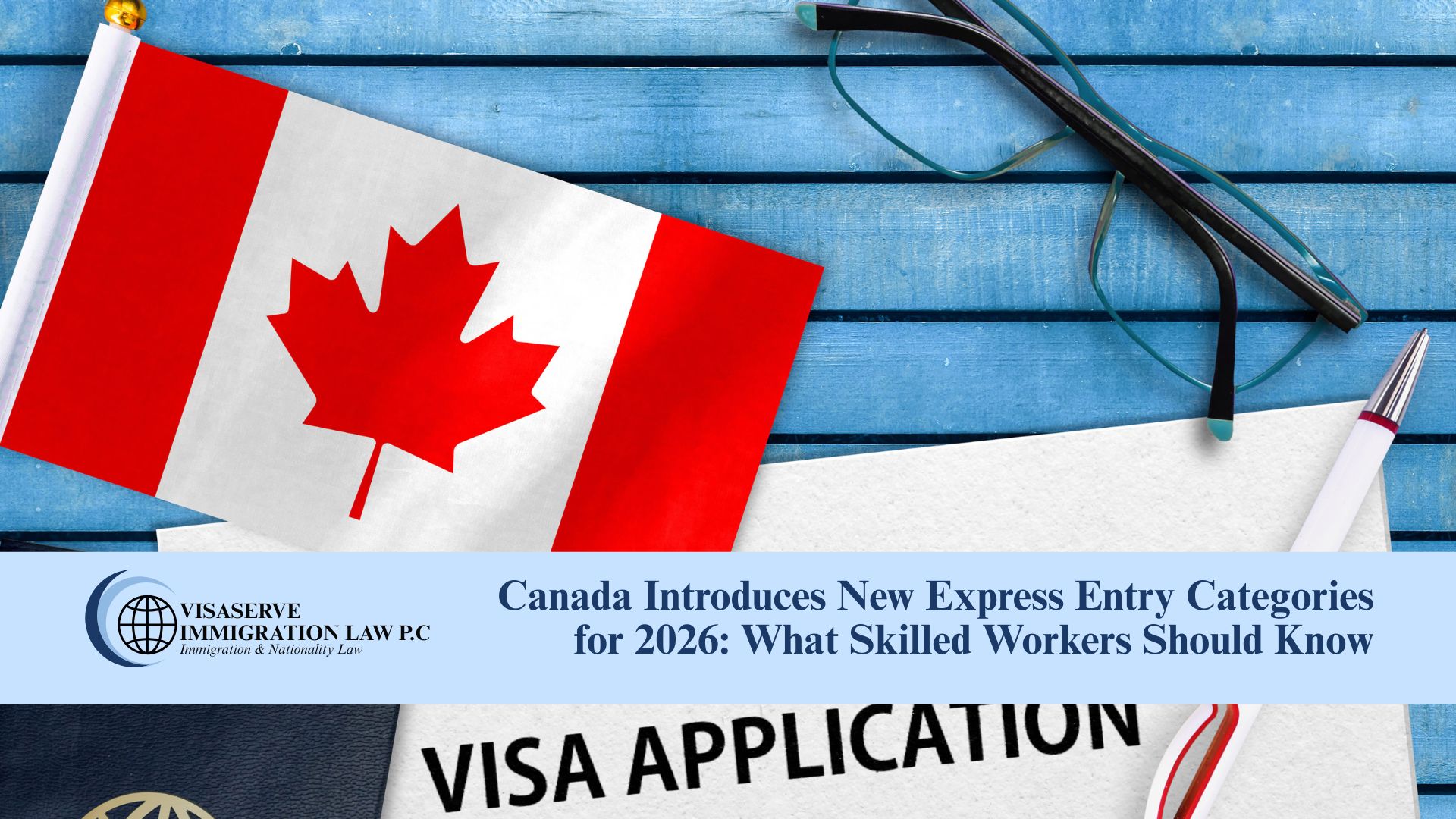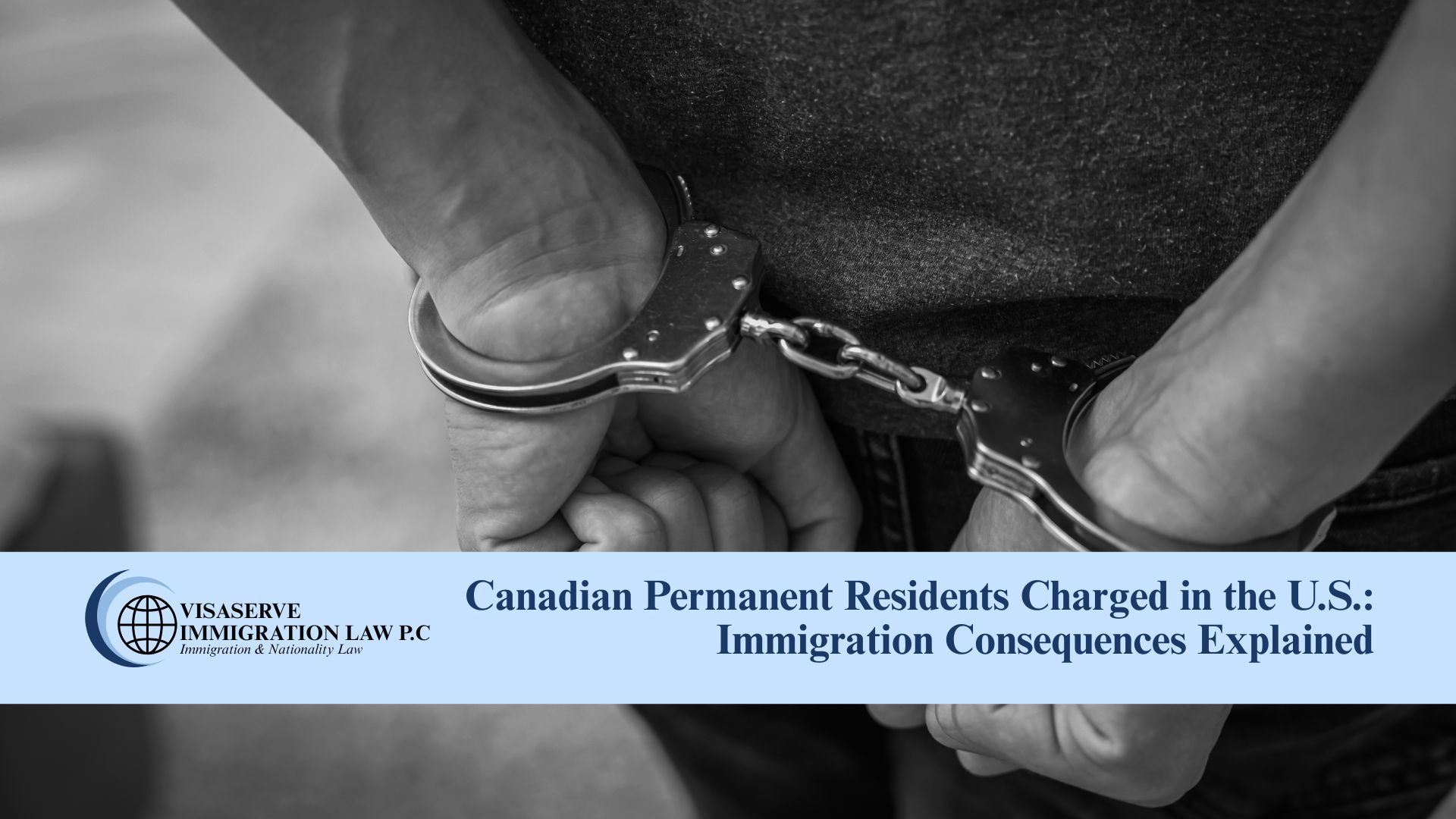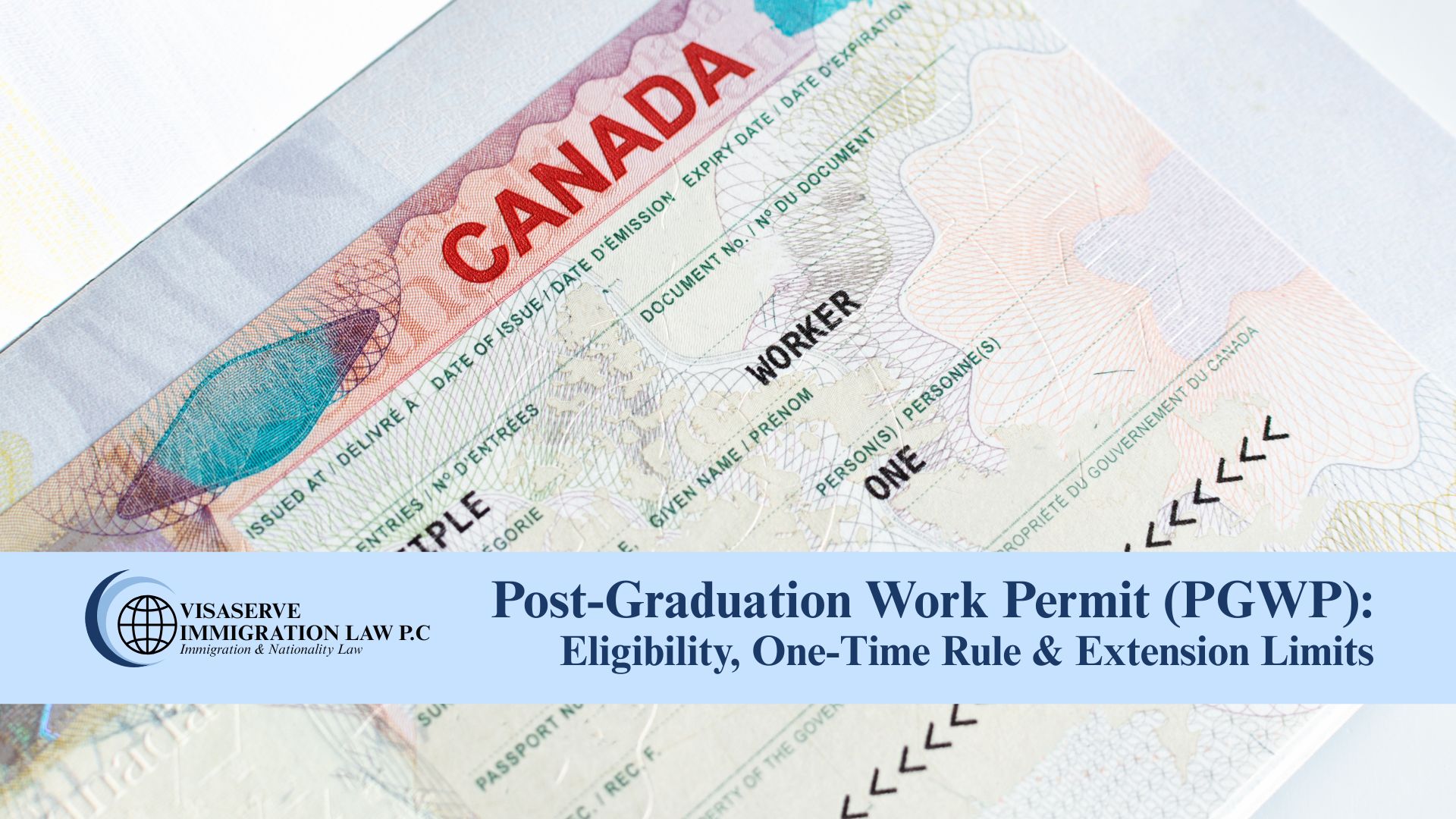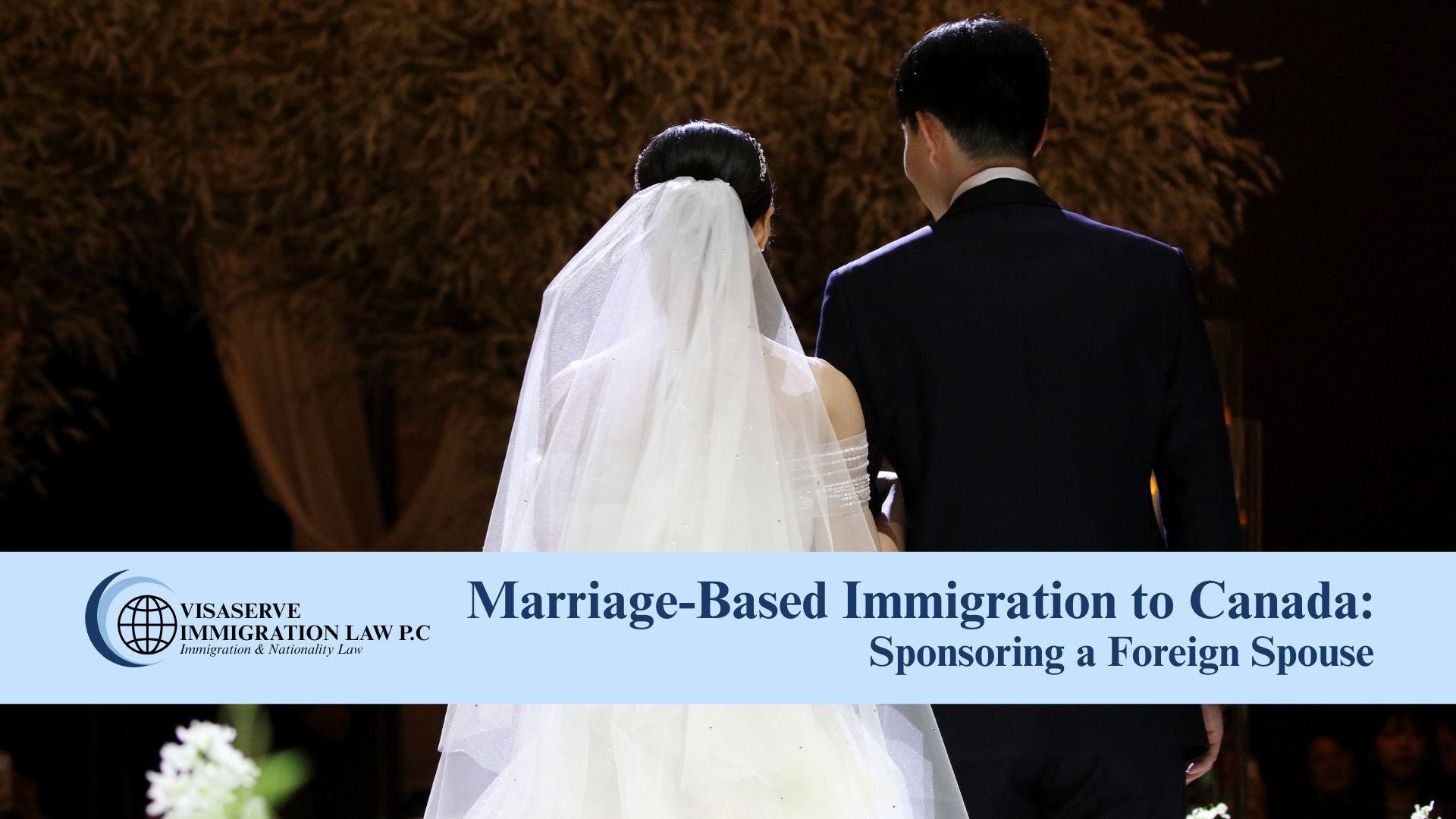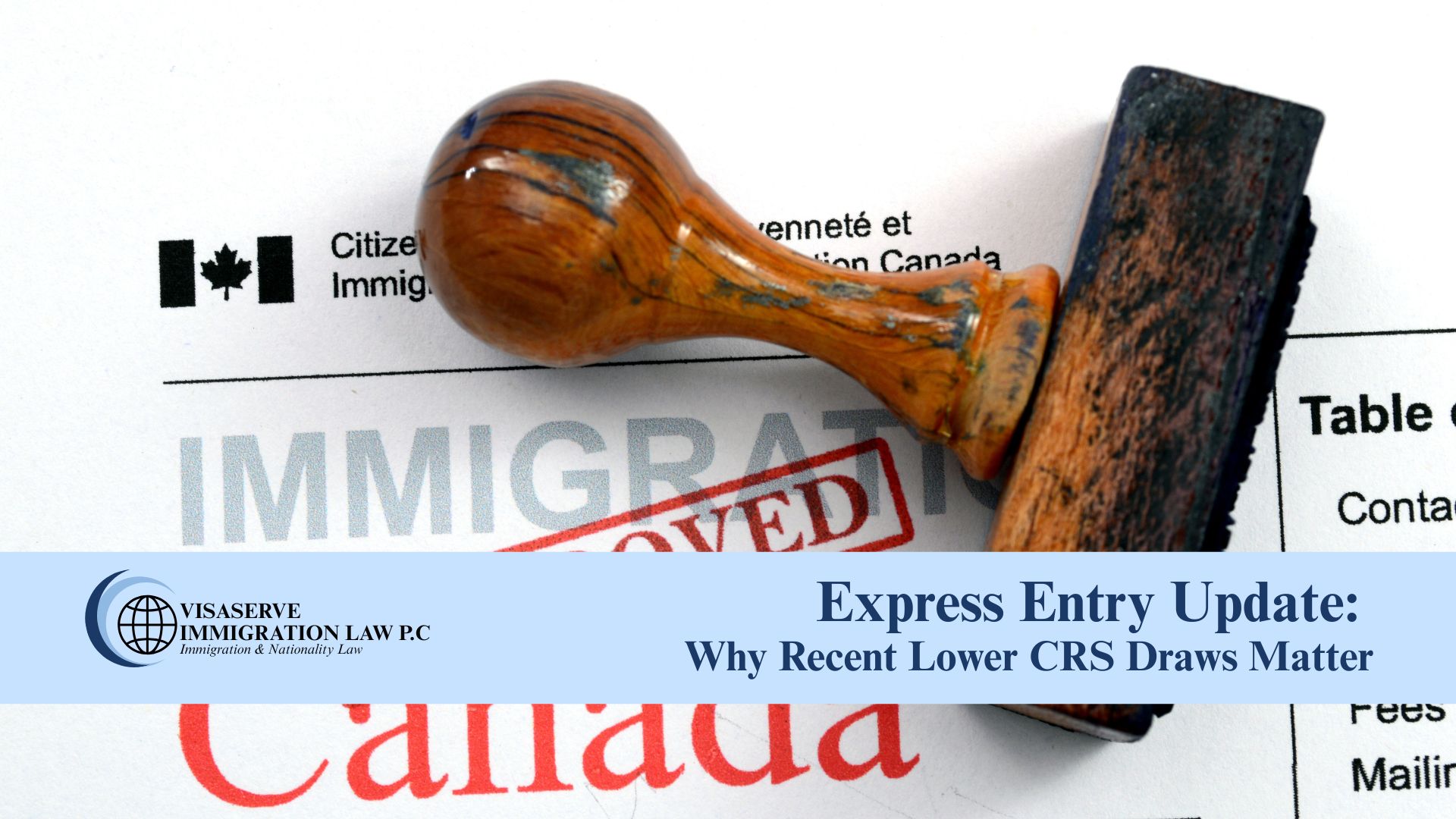Canada has placed Francophone immigration outside Quebec at the heart of its immigration strategy. With a target of 6% French-speaking permanent residents admitted annually outside Quebec by 2030, Immigration, Refugees and Citizenship Canada (IRCC) has introduced new programs, category-based draws, and pilot initiatives.
For nationals of Cameroon, Algeria, Morocco, and the Democratic Republic of Congo (DRC)—four of the most populous and active French-speaking nations—this represents an unprecedented opportunity. According to IRCC’s Francophone Immigration Dashboard, these four countries consistently rank among the top source countries for French-speaking permanent residents.
While countries such as Chad and Comoros are also eligible under many of the same programs, their admission numbers are comparatively smaller.
Why Canada is Prioritizing Francophone Immigration
-
Demographic balance: Canada seeks to maintain a strong Francophone presence outside Quebec to protect linguistic duality.
-
Labour market needs: Francophone African countries supply skilled workers in IT, engineering, health care, and education—sectors where Canada faces shortages.
-
Regional strategy: IRCC’s Francophone Immigration Strategy 2024 sets explicit admissions targets and expands outreach in Africa through Destination Canada recruitment events.
In 2024, 7.2% of all permanent residents admitted outside Quebec were French-speaking, exceeding federal targets.
Key Pathways for French-Speaking Applicants
1. Express Entry – Francophone Category-Based Selection
-
Candidates with strong French-language ability (NCLC 7+) can gain up to 50 additional CRS points, even when French is their second official language.
-
Since 2023, IRCC has conducted French-speaking targeted Express Entry draws with lower CRS cut-offs compared to general rounds.
-
Nationals of Cameroon, Algeria, Morocco, and DRC benefit greatly from this as they make up some of the largest pools of French test-takers globally.
Example: A Moroccan engineer with CLB 7 French and CLB 5 English may
receive an ITA in a targeted Francophone draw even with a mid-range CRS score.
2. Francophone Community Immigration Pilot (FCIP)
Launched in 2024, FCIP builds on the success of the Rural and Northern Immigration Pilot but focuses specifically on French-speaking candidates.
-
Eligibility:
-
Valid job offer in a designated Francophone community outside Quebec
-
At least 1 year of work experience in the last 3 years
-
Language test: minimum NCLC 5 in French
-
Education credential assessment (ECA) required if educated abroad
-
Proof of settlement funds (unless already working in Canada)
-
-
Communities participating include regions in Ontario, Manitoba, and New Brunswick.
For applicants from Cameroon or DRC, where unemployment is high despite strong education levels, this program offers a pathway with a direct employer connection.
3. Francophone Minority Communities Student Pilot (FMCSP)
This student-to-PR route is specifically designed for nationals from countries such as Cameroon, Algeria, Morocco, Chad, Comoros, and DRC.
-
Students must enroll in a French-language postsecondary program outside Quebec at a designated learning institution (DLI).
-
After graduation, they can transition to permanent residence through Express Entry, provincial nomination, or work permit-based routes.
Many Moroccan and Algerian students already pursue studies in Ontario and Atlantic Canada; FMCSP gives them a more structured pathway to PR.
4. Provincial Nominee Programs (PNPs)
Several provinces actively seek French-speaking candidates:
-
Ontario: Express Entry French-Speaking Skilled Worker Stream—candidates with strong French and intermediate English can be nominated with CRS boosts.
-
New Brunswick: Actively recruits French speakers, especially in health and education.
-
Manitoba: Runs community-driven programs supporting Francophone settlement.
PNPs are especially attractive for DRC applicants with family ties or job prospects in French-speaking communities.
5. Temporary Resident to Permanent Resident (TR to PR) Pathways
Past TR to PR streams have included French-speaking eligibility categories, giving work permit or study permit holders a direct path to PR. While these programs are not always open, IRCC has signaled that French speakers may be prioritized in future TR to PR rounds.
Country Profiles: Why These Four Nations Lead
Cameroon
-
Among the top three Francophone source countries for Canada.
-
Strong educational background, especially in engineering, IT, and medicine.
-
In 2024, Cameroon sent more than 10,000 French-speaking PRs to Canada.
Morocco
-
Large student pipeline, with thousands of Moroccan students in Canada annually.
-
Skilled workers in IT and health fields are in demand.
-
Historically high approval rates for Francophone immigration programs.
Algeria
-
Consistent contributor to French-speaking immigration.
-
Many applicants enter through Express Entry and Ontario’s French-Speaking Skilled Worker stream.
Democratic Republic of Congo (DRC)
-
High population and French fluency.
-
Growing admissions through both skilled worker and family sponsorship streams.
Chad & Comoros
-
While admission numbers are lower, both are eligible under FMCSP and FCIP.
-
Good inclusion in a “complete Francophone Africa” strategy, but not leading markets.
Challenges to Anticipate
-
Competition: Morocco, Algeria, and Cameroon applicants compete in large numbers.
-
Settlement location: Francophone pilots often require moving to smaller communities.
-
Credential recognition: Health care and regulated professions may require additional licensing.
-
Policy changes: Pilots can close or quotas can be capped quickly—timing matters.
Strategic Steps for Applicants
-
Complete a French-language test (TEF Canada or TCF Canada).
-
Assess education credentials (ECA) to ensure Canadian equivalency.
-
Create an Express Entry profile to enter the pool.
-
Research Francophone community employers if targeting FCIP.
-
Consider study routes through FMCSP for younger applicants.
-
Stay updated on IRCC draws and pilot expansions.
Why Legal Guidance is Essential
Each pathway has unique documentation, timelines, and compliance risks. For instance:
-
A Cameroonian IT graduate may qualify for Express Entry under French draws.
-
A Moroccan nurse might need both credential recognition and a provincial nomination.
-
An Algerian student may benefit from FMCSP but must meet financial and DLI requirements.
-
A Congolese applicant with family ties could combine sponsorship with Express Entry.
At Visaserve Immigration Law P.C., we evaluate your profile, identify the strongest pathway, and ensure that applications meet IRCC’s strict requirements.
Conclusion
For French-speaking nationals of Cameroon, Algeria, Morocco, and the DRC, Canada’s immigration system has never been more favorable. With dedicated Express Entry draws, Francophone pilots, and study pathways, French fluency provides a distinct advantage.
Smaller Francophone nations such as Chad and Comoros also benefit from these pathways, but the majority of admissions come from the top four source countries.
Now is the time to explore your eligibility and begin the process—before policy caps are reached.
